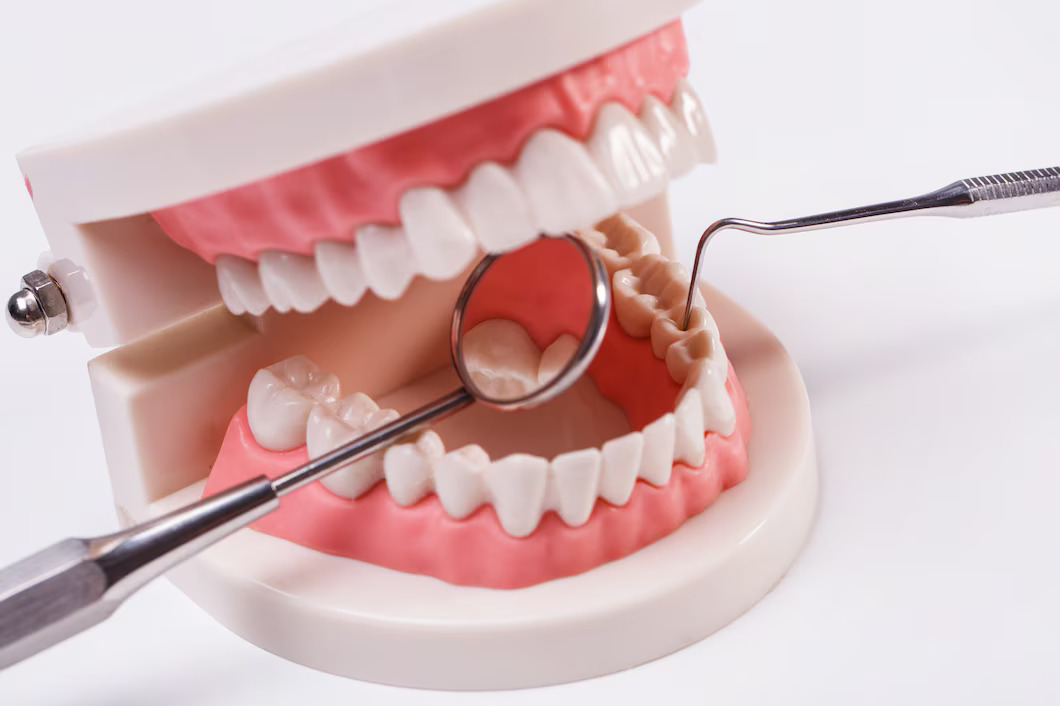Dental problems are not only caused by poor oral hygiene but can also arise from a lack of essential minerals such as calcium, phosphorus, and magnesium. These minerals play a vital role in forming and maintaining the strength of tooth structures, including enamel and dentin. Without adequate intake, teeth become more vulnerable to damage such as brittleness, cavities, and delayed formation of protective layers.
The Importance of Minerals in Tooth Development
The process of tooth formation, especially in children, is greatly influenced by maternal nutrition during pregnancy and breastfeeding. When mothers experience mineral deficiencies such as calcium, it can affect the quality and thickness of their child’s dentin.
A study by drg. Heriati Sitosari, MDSc., Ph.D. and Dr. drg. Alma Linggar Jonarta, M.Kes. at FKG UGM, titled “The Effect of Chicken Bone Powder Administration to Sprague Dawley Rats During Pregnancy and Lactation on Offspring Dentin Thickness,” showed that chicken bone powder supplementation can increase dentin thickness in rat offspring.
This research highlights how early nutritional intervention provides long-term benefits for children’s dental health. Applied to humans, it underlines the importance of adequate mineral intake during pregnancy to prevent structural abnormalities in children’s teeth.
How to Address Dental Problems Due to Mineral Deficiency
- Improve Daily Diet
Consume calcium-rich foods such as milk, cheese, yogurt, anchovies, and leafy greens like spinach or broccoli. Add magnesium sources from nuts and seeds, as well as phosphorus from meat and eggs. - Mineral Supplements if Needed
In some cases—particularly for pregnant or breastfeeding mothers, or children at risk of deficiency—dentists or physicians may recommend calcium supplements or multivitamins. - Use Mineral-Containing Toothpaste
Some modern toothpaste products include remineralizing agents such as fluoride, hydroxyapatite, or calcium phosphate to strengthen weakened enamel. - Visit Your Dentist Regularly
Routine checkups help detect early problems, including fragile teeth caused by mineral deficiency. Dentists may suggest additional treatments like fluoride therapy or sealants. - Prioritize Nutrition During Pregnancy
As shown in UGM’s research, maternal diet during pregnancy and breastfeeding has a direct impact on children’s dental strength later in life. Ensuring adequate calcium and phosphorus intake is crucial for maternal and child health programs.
***
Mineral deficiency can trigger various dental health issues, from sensitivity to weak dentin structure. Preventing and addressing these problems requires more than oral hygiene—it must also involve proper nutrition, particularly from pregnancy onward. UGM’s findings indicate that nutrition-based solutions, such as utilizing natural calcium sources (e.g., bone powder), offer innovative approaches to maintaining dental health from an early age.
References
drg. Heriati Sitosari, MDSc., Ph.D., Dr. drg. Alma Linggar Jonarta, M.Kes., The Effect of Chicken Bone Powder Administration to Sprague Dawley Rats During Pregnancy and Lactation on Offspring Dentin Thickness, https://etd.repository.ugm.ac.id/penelitian/detail/62238
Author: Rizky B. Hendrawan | Photo: Freepik

